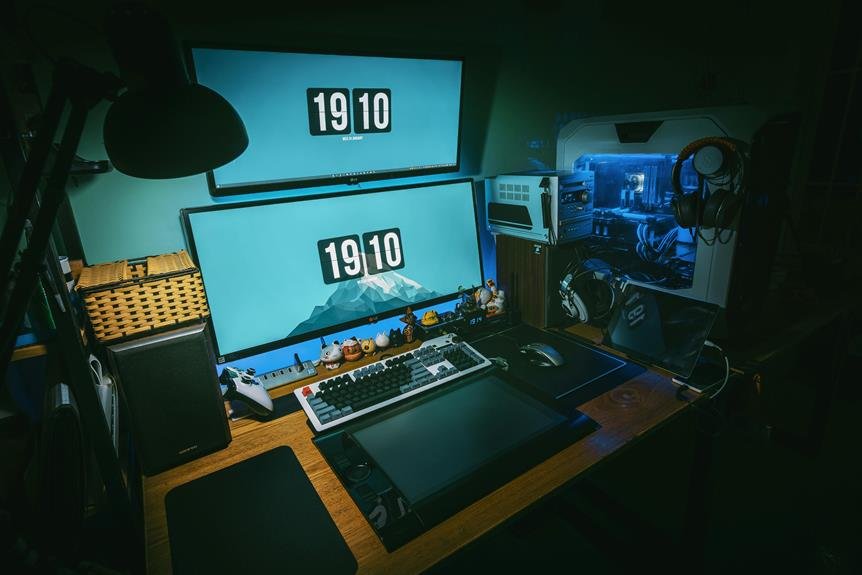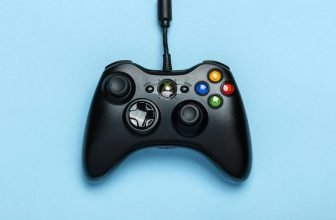
When building a custom gaming PC, you can enjoy unmatched performance and tailor it to fit your needs perfectly. You get the freedom to handpick each component, optimizing your gaming experience just the way you like it. However, keep in mind that this adventure might come with higher costs and require technical expertise. Make sure to weigh these factors carefully before diving into the world of DIY PC building.
Pros of Building a Custom Gaming PC
Building a custom gaming PC offers unparalleled performance and customization options that cater specifically to your gaming needs. You have the freedom to handpick each component, ensuring that your PC meets the exact specifications required for your favorite games. This level of customization allows you to optimize performance based on your preferences, whether it's focusing on graphics for visually stunning gameplay or prioritizing processing power for smoother overall operation.
When you build your own gaming PC, you have the opportunity to stay ahead of the curve with the latest technology. As new components are released, you can easily upgrade your system without being limited by proprietary designs or compatibility issues. This flexibility ensures that your gaming rig remains cutting-edge and capable of handling upcoming titles with ease.
Moreover, building a custom gaming PC can be a rewarding experience that enhances your understanding of computer hardware and how different components work together to deliver peak performance. It's a chance to showcase your creativity and technical prowess while creating a machine that's truly unique to your gaming style.
Cons of Building a Custom Gaming PC
While customizing a gaming PC can offer numerous benefits, there are certain drawbacks to consider as well. One of the main cons of building a custom gaming PC is the potential for higher costs compared to buying a pre-built system. Custom components can add up quickly, especially if you opt for high-end parts that deliver top performance. Additionally, building a custom gaming PC requires technical knowledge and can be time-consuming. Selecting compatible parts, assembling them correctly, and troubleshooting any issues that arise can be challenging for those new to PC building.
Another drawback is the lack of warranty coverage that often comes with individual components. While each part may have its warranty, the overall system as a whole may not be covered, making it more complex to address potential malfunctions. Furthermore, staying up-to-date with the latest technology and components can be overwhelming, as the pace of innovation in the gaming industry is rapid. This means that your custom-built PC may become outdated sooner than expected, requiring more frequent upgrades to keep up with new releases.
Factors to Consider Before Building
Before embarking on the journey of creating your custom gaming PC, it's crucial to carefully consider several key factors. One of the most important aspects to ponder is your budget. Determine how much you're willing to invest in your gaming rig, keeping in mind that high-end components can significantly increase the overall cost.
Additionally, think about the purpose of your PC. Are you building it primarily for gaming, content creation, or a combination of both? This will help you choose the right components that align with your needs.
Another factor to take into account is future upgradability. Technology evolves rapidly, so selecting components that allow for easy upgrades can prolong the lifespan of your custom PC. Consider the aesthetics of your build as well. Do you prefer a sleek and minimalistic design, or are you looking to create a visually striking setup with RGB lighting?
Lastly, think about the time and effort you're willing to dedicate to the building process. Custom PC building requires patience, research, and attention to detail, so ensure you're ready for the challenge ahead.
Tips for Successful DIY PC Building
Consider starting by emphasizing the practical aspect of the DIY PC building process to engage the reader immediately. When embarking on the journey of building your custom gaming PC, there are key tips to ensure success.
Begin by carefully selecting compatible components, such as the motherboard, CPU, GPU, RAM, and power supply. Research extensively and leverage online resources to stay updated on the latest hardware trends and compatibility issues.
Assemble your tools beforehand, including screwdrivers, thermal paste, cable ties, and an anti-static wristband to prevent damage. Prioritize cable management to enhance airflow and optimize performance.
Take your time during the build process, following manuals and tutorials meticulously to avoid common pitfalls. Test your system thoroughly before installing the operating system to catch any hardware issues early.
Conclusion
In conclusion, building a custom gaming PC has its advantages and disadvantages.
While it allows you to tailor your system to your specific needs and preferences, it can also be time-consuming and potentially more expensive than buying a pre-built system.
Before embarking on this DIY project, make sure to carefully consider your budget and technical skills.
With proper planning and research, building your own gaming PC can be a rewarding and satisfying experience.




